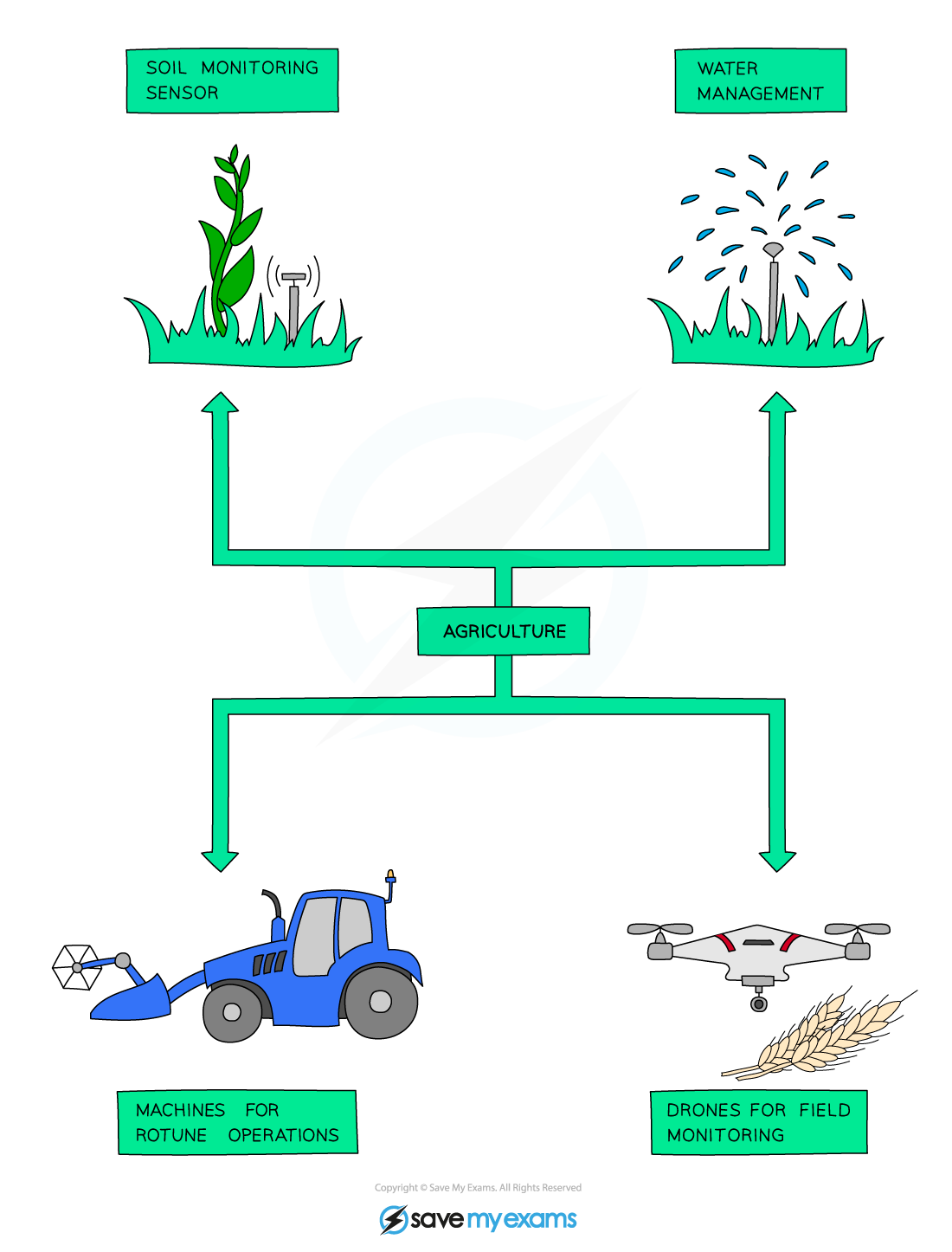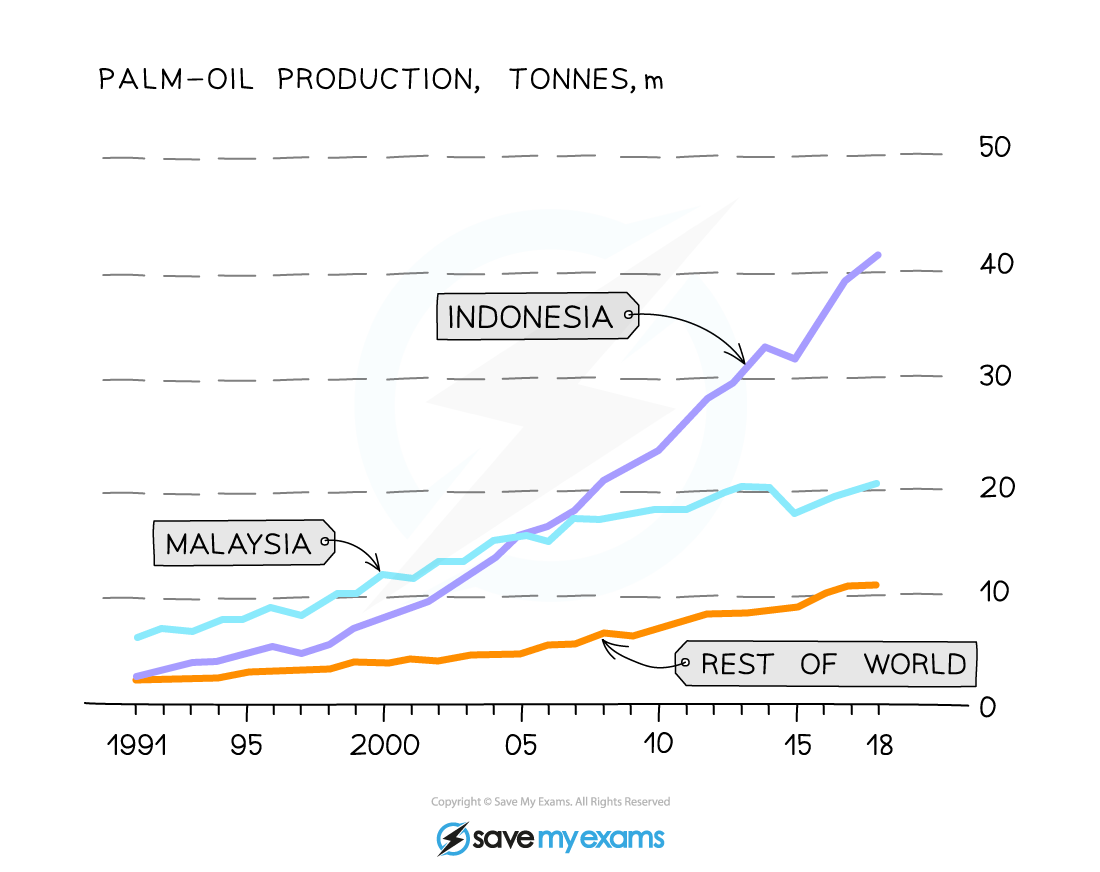- 翰林提供学术活动、国际课程、科研项目一站式留学背景提升服务!
- 400 888 0080
CIE IGCSE Biology: 复习笔记:20.1.1 Ensuring Food Supply
CIE IGCSE Biology: 复习笔记:20.1.1 Ensuring Food Supply
Intensive Food Production
- Making food production more intensive means producing food more efficiently with a finite amount of land and other resources
- Modern technology has increased food supply substantially in the following ways:
- Agricultural machinery has replaced humans and improved efficiency due to the ability to farm much larger areas of land
- Chemical fertilisers improve yields - fertilisers increase the amount of nutrients in the soil for plants, meaning that they can grow larger and produce more fruit
- Insecticides and herbicides - these chemicals kill off unwanted insects and weed species, meaning that there is less damage done to plants and fruit lost to insects (insecticides), as well as reducing competition from other plant species (herbicides)
- Selective breeding - animals and crop plants which produce a large yield are selectively bred to produce breeds that reliably produce high yields
 Modern agricultural processes allows for cultivation of much larger areas of land for crop plants
Modern agricultural processes allows for cultivation of much larger areas of land for crop plants
Monocultures
- Monoculture farming means that on a given area of agricultural land only one type of crop is grown (eg trees for palm oil grown in Indonesian rainforest)
- This large scale growth of a single variety of plant does not happen naturally in ecosystems, where there are usually many different species of plants growing which, in turn, support many species of animals (high biodiversity)
- In monocultures, biodiversity is much lower
- Another issue with monocultures is the increase in pest populations – if a particular pest feeds on a crop, farming it in large areas repeatedly means there is an ample supply of food for the pest, causing the population to increase
- Often farmers will spray insecticides onto crops in order to control the pests. This leads to:
- harmless insects being killed as well
- pollution by pesticides (which are often persistent chemicals which accumulate in food chains)
- in many instances where they are used repeatedly for specific pests, the pests may eventually become resistant to them, reducing their effectiveness
 Palm oil production has increased rapidly over the last 30 years
Palm oil production has increased rapidly over the last 30 years
转载自savemyexams

在线登记
最新发布
翰林课程体验,退费流程快速投诉邮箱: yuxi@linstitute.net 沪ICP备2023009024号-1








